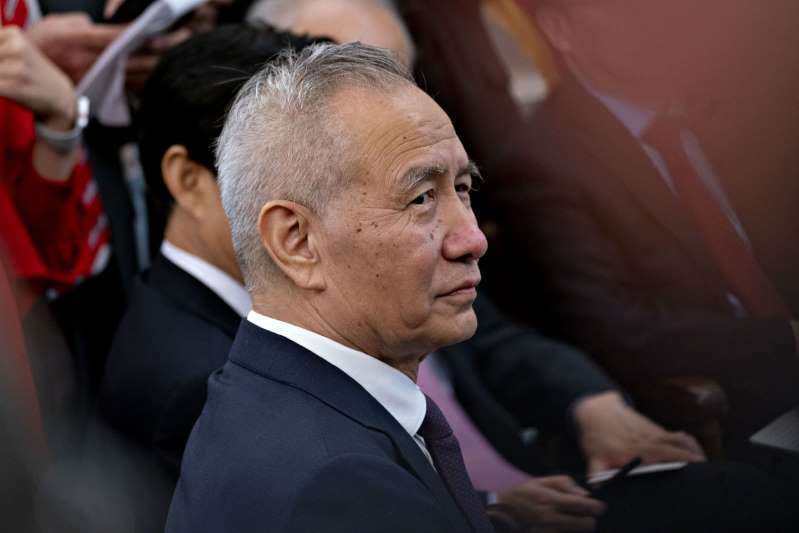By Shawn Donnan, Bloomberg News–
China’s chief trade negotiator said at a dinner Wednesday night that he was “cautiously optimistic” about reaching a phase one deal with the U.S., even as talks continue to stretch out amid tensions over Hong Kong and other issues.
Vice Premier Liu He made the comments in a speech in Beijing, according to people who attended the dinner and asked not to be identified. He also explained China’s plans for reforming state enterprises, opening up the financial sector, and enforcing intellectual property rights — issues at the core of U.S. demands for change in China’s economic system.
Separately from the speech, he told one of the attendees that he was “confused” about the U.S. demands, but was confident the first phase of an agreement could be completed nevertheless.
Since President Donald Trump announced the phase one deal a month ago, markets have been whipsawed by comments from both sides, first indicating progress, and then the opposite. Just on Wednesday, Trump said China wasn’t “stepping up to the level that I want.”
The MSCI Asia Pacific Index is heading for its biggest fall in almost three months and S&P 500 futures slid, though moves eased after Bloomberg published news of Liu’s comments. Bond yields pared declines and the yen trimmed gains.
U.S.-China Trade Deal Inches Ahead, Shadowed by Failure Risk
If efforts to reach a phase one deal fail before Dec. 15, Trump has threatened to impose 15% tariffs on some $160 billion in imports from China.
Liu’s comments on Wednesday came before the House voted 417-1 for legislation supporting Hong Kong protesters that has already been unanimously approved by the Senate. It could go to Trump as soon as Thursday and he plans to sign the bill, a person familiar with the matter said.
Liu was speaking at a dinner before the New Economy Forum. The Forum is being organized by Bloomberg Media Group, a division of Bloomberg LP, the parent company of Bloomberg News.
Trump Expected to Sign Hong Kong Bill Despite China Threats (1)
While the Hong Kong bill is a negative factor for the phase one deal, China still may be able to reach an agreement with the U.S. this year, said Zhang Yansheng, who previously worked at the National Development and Reform Commission, the country’s top economic planner.
“The optimistic view is that the phase-one deal can be reached within this year, and a more pessimistic one is that the first phase will be dragged to some point next year,” said Zhang, who is now chief researcher at the China Center for International Economic Exchanges. “I think if there are no disruptions such as uncalled-for tweets or remarks, there is the probability of the phase-one deal being reached this year.”
Speaking at the forum Thursday, Vice President Wang Qishan said China would follow through on policy changes despite facing serious challenges at home and aboard. He said the country would continue to let the market play a “decisive role” in the allocation for resources and stick to the path of peaceful development.
“Between war and peace, the Chinese people firmly choose peace. Humanity cherishes peace,” Wang said in the keynote address. “We should abandon the zero-sum thinking and cold war mentality.”
China Committed to Peace Despite Challenges, Vice President Says
While the phase one deal remains uncertain, trade experts say frictions between the world’s two biggest economies will continue regardless of that outcome.
“Tactical shifts may deescalate tensions in the short term but will not resolve fundamental differences which can no longer be papered over,” said Charlene Barshefsky, who negotiated China’s entry into the World Trade Organization under President Bill Clinton. “We are at an inflection point. No outcome is inevitable but two decades of careful management of the relations between China and the West have run its course.”
(Updates with former Chinese official’s comments in ninth paragraph.)
To contact the reporter on this story: Shawn Donnan in Beijing at sdonnan@bloomberg.net
To contact the editors responsible for this story: Malcolm Scott at mscott23@bloomberg.net, James Mayger
For more articles like this, please visit us at bloomberg.com
©2019 Bloomberg L.P.


Leave A Comment
You must be logged in to post a comment.